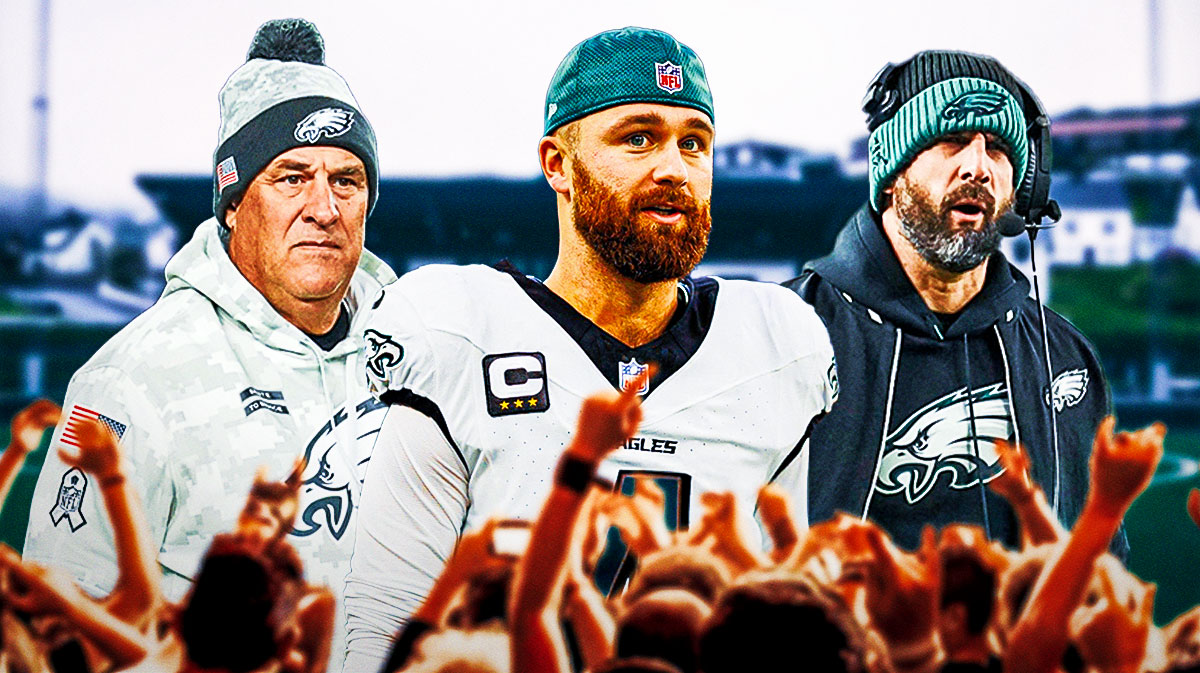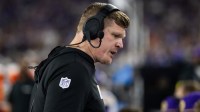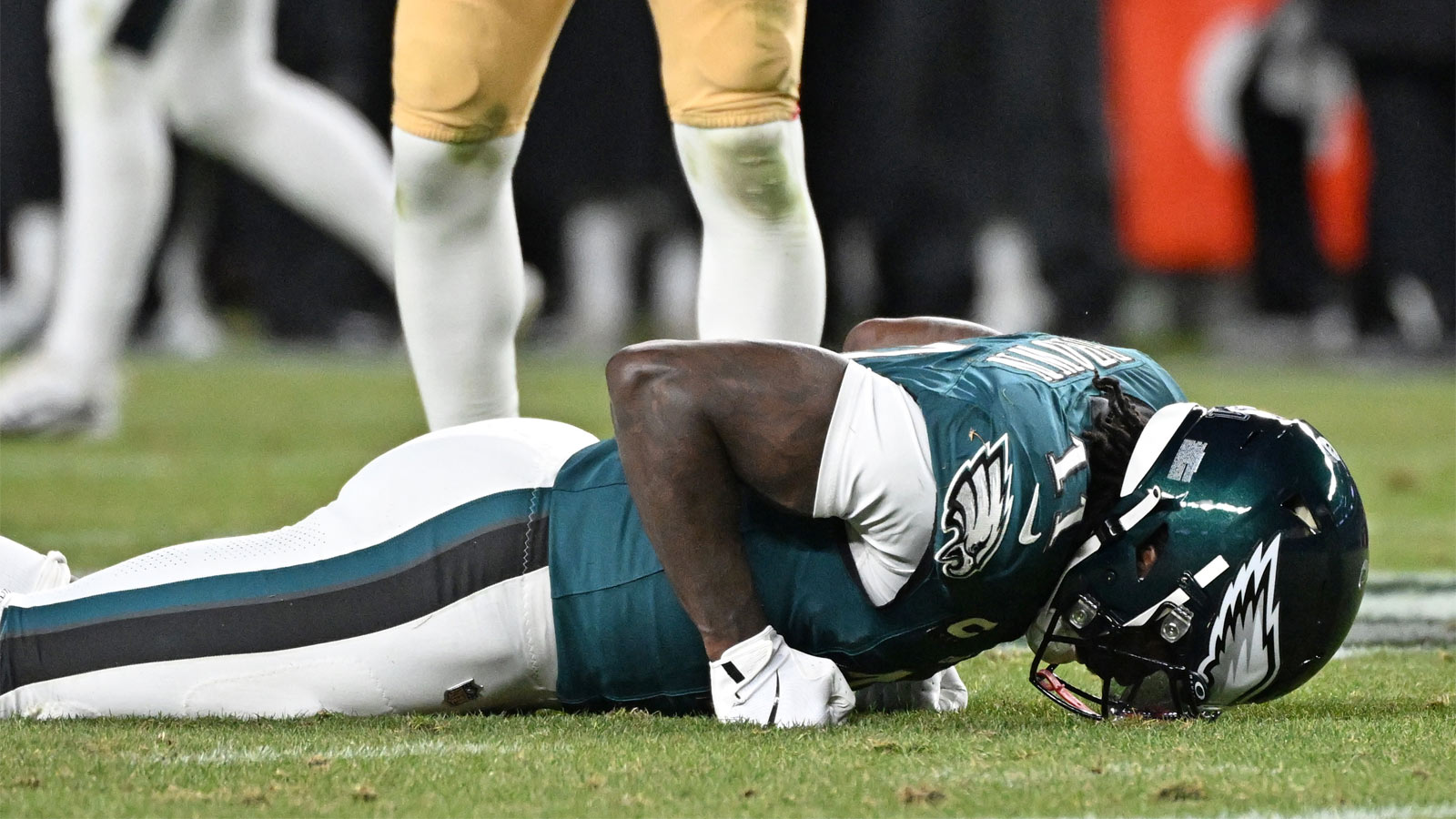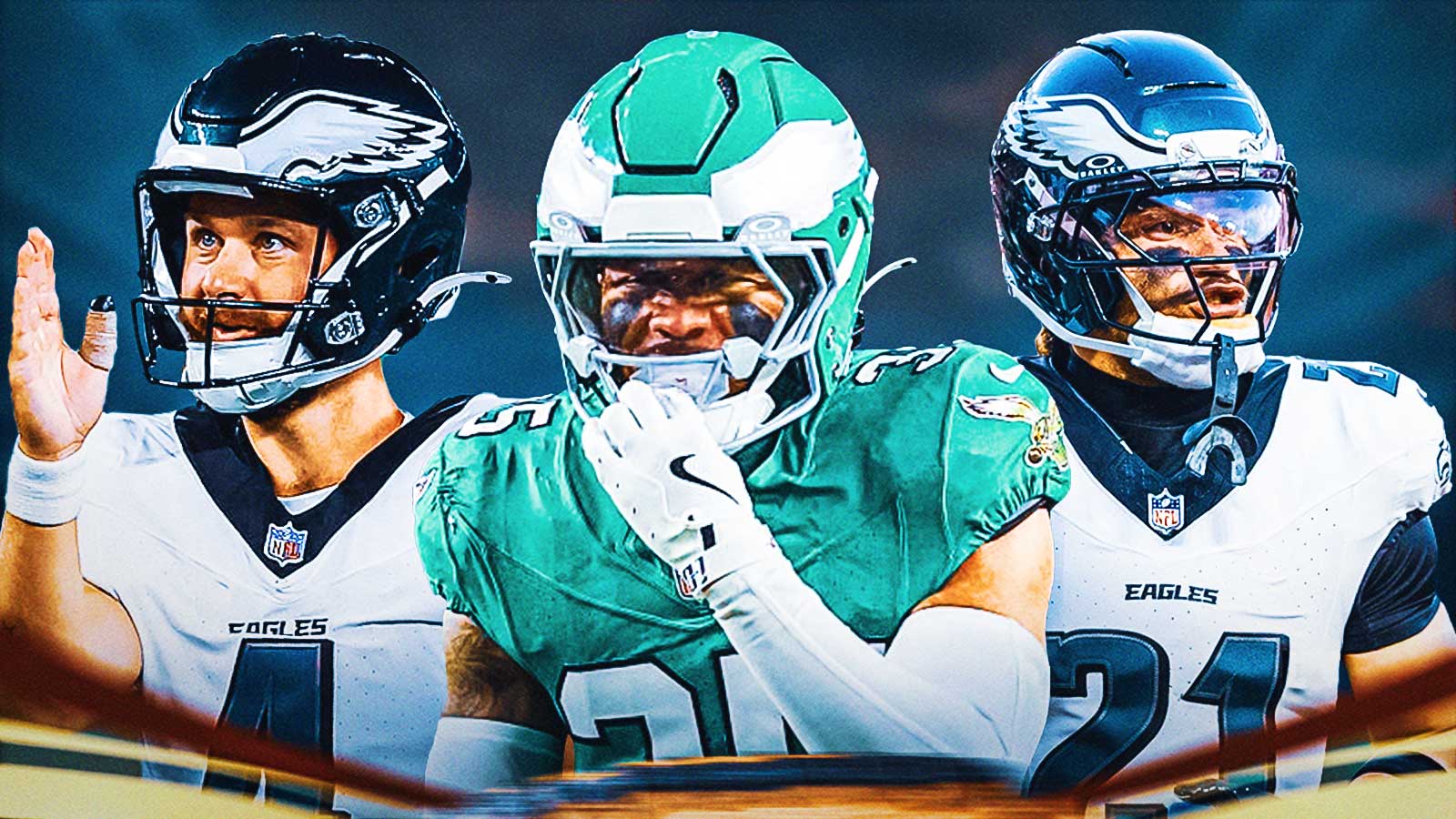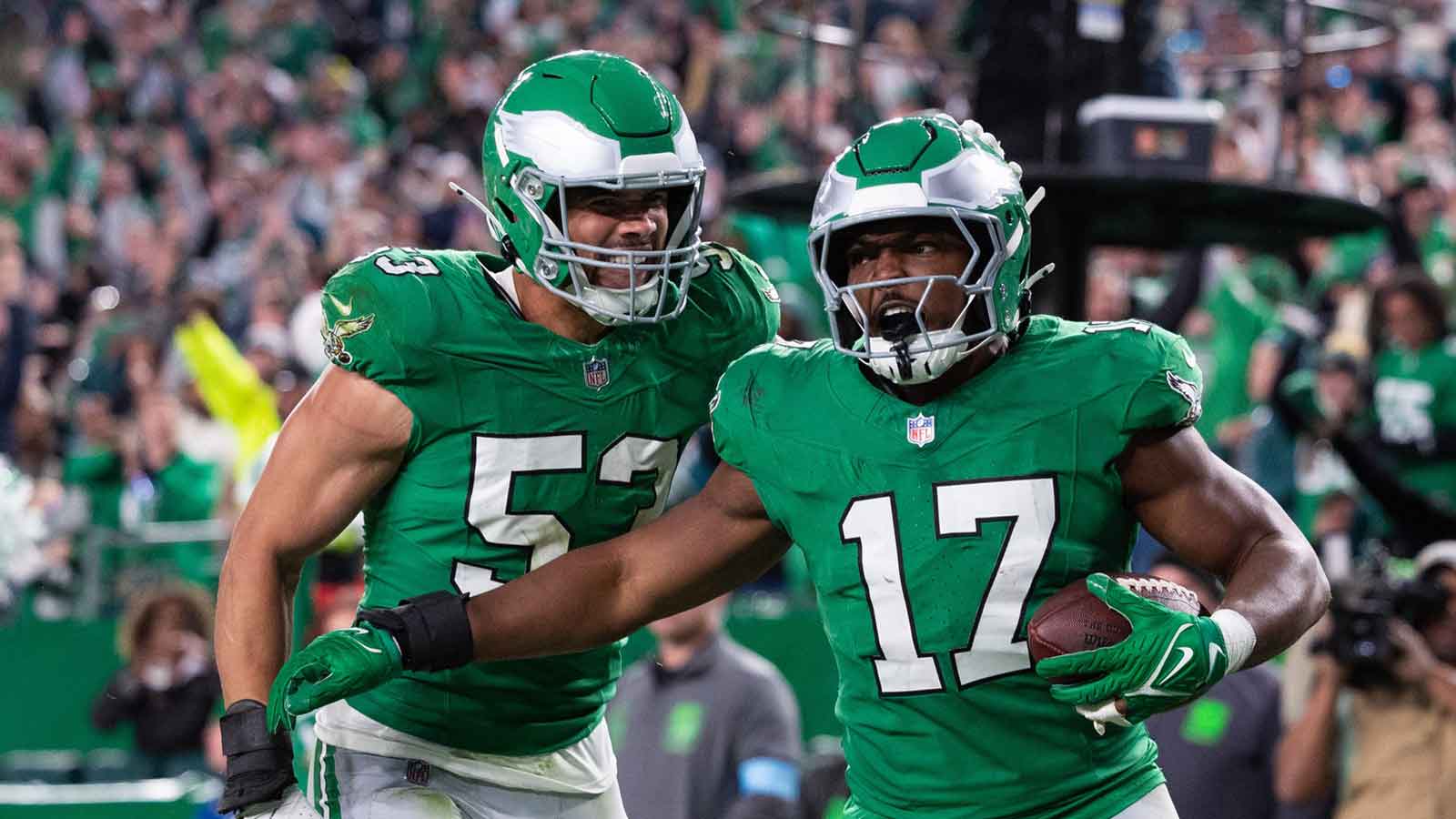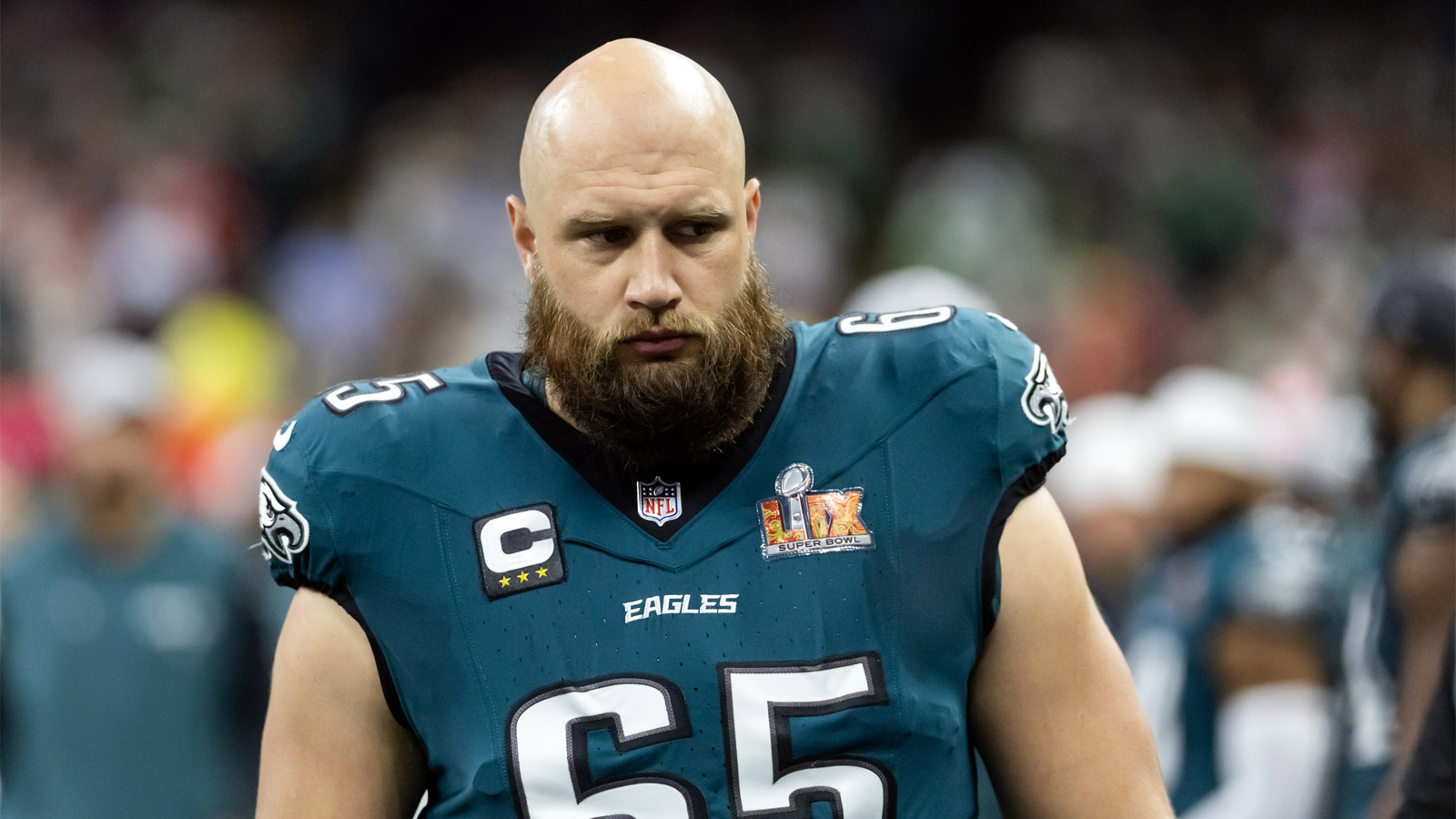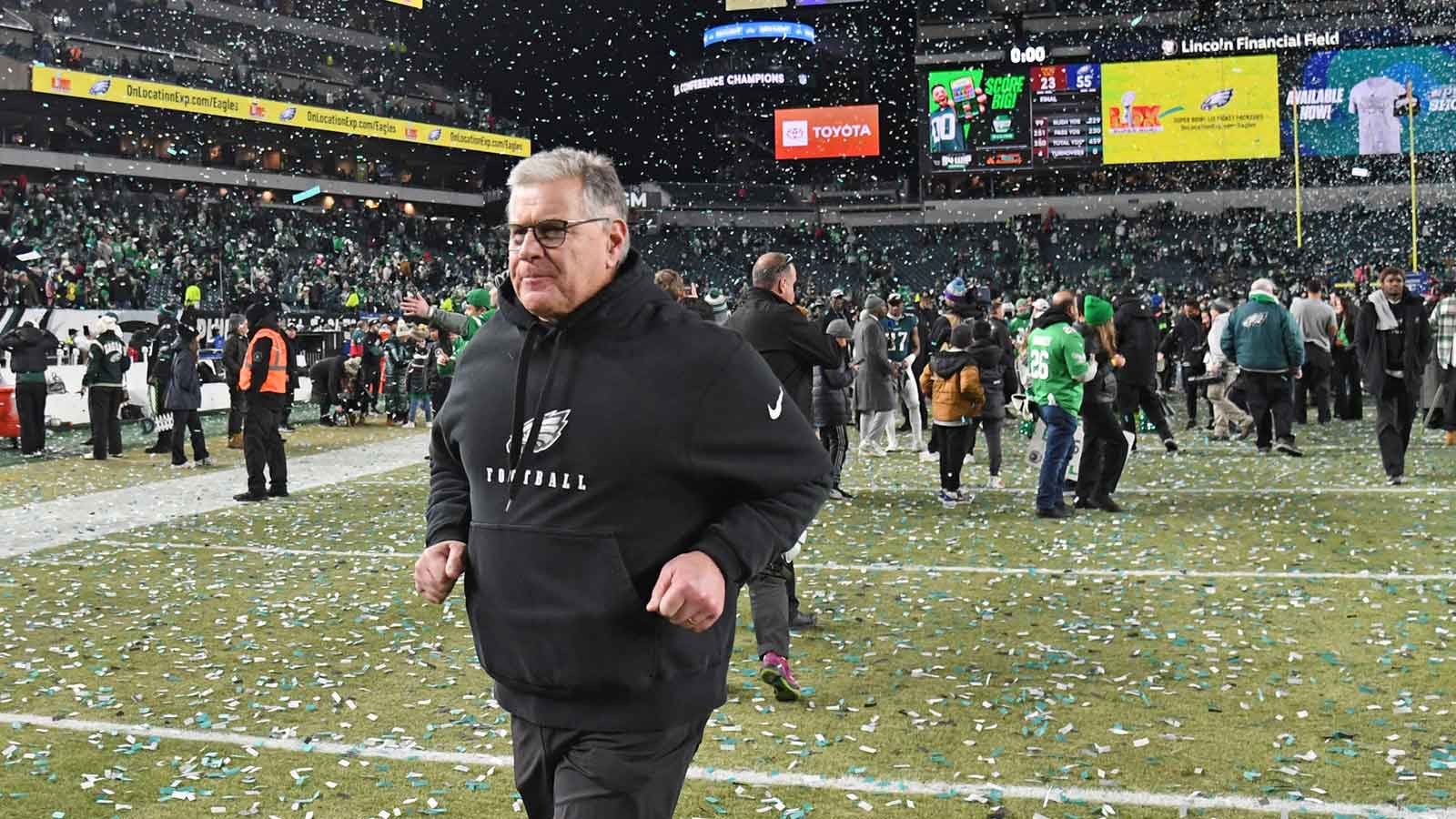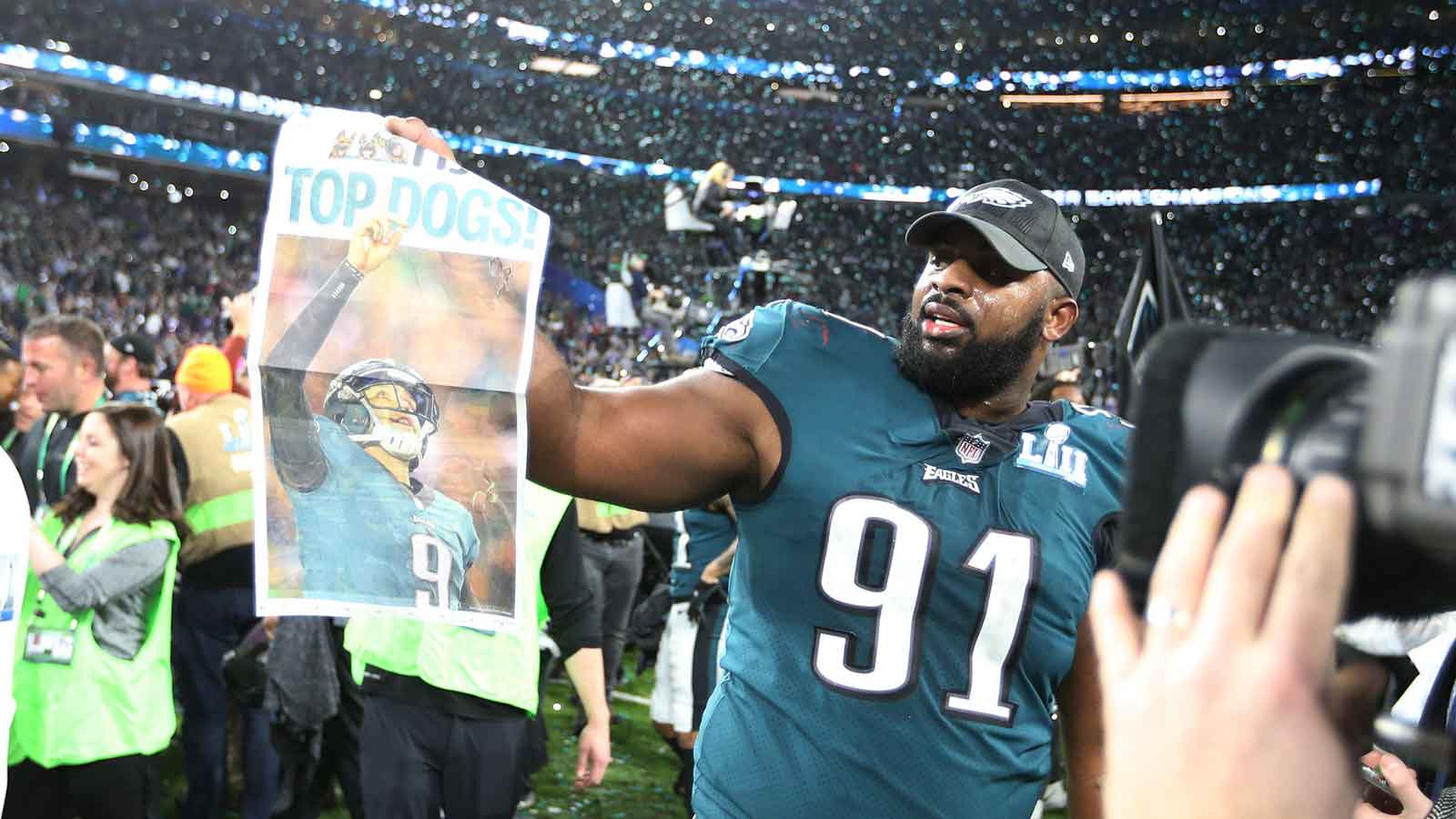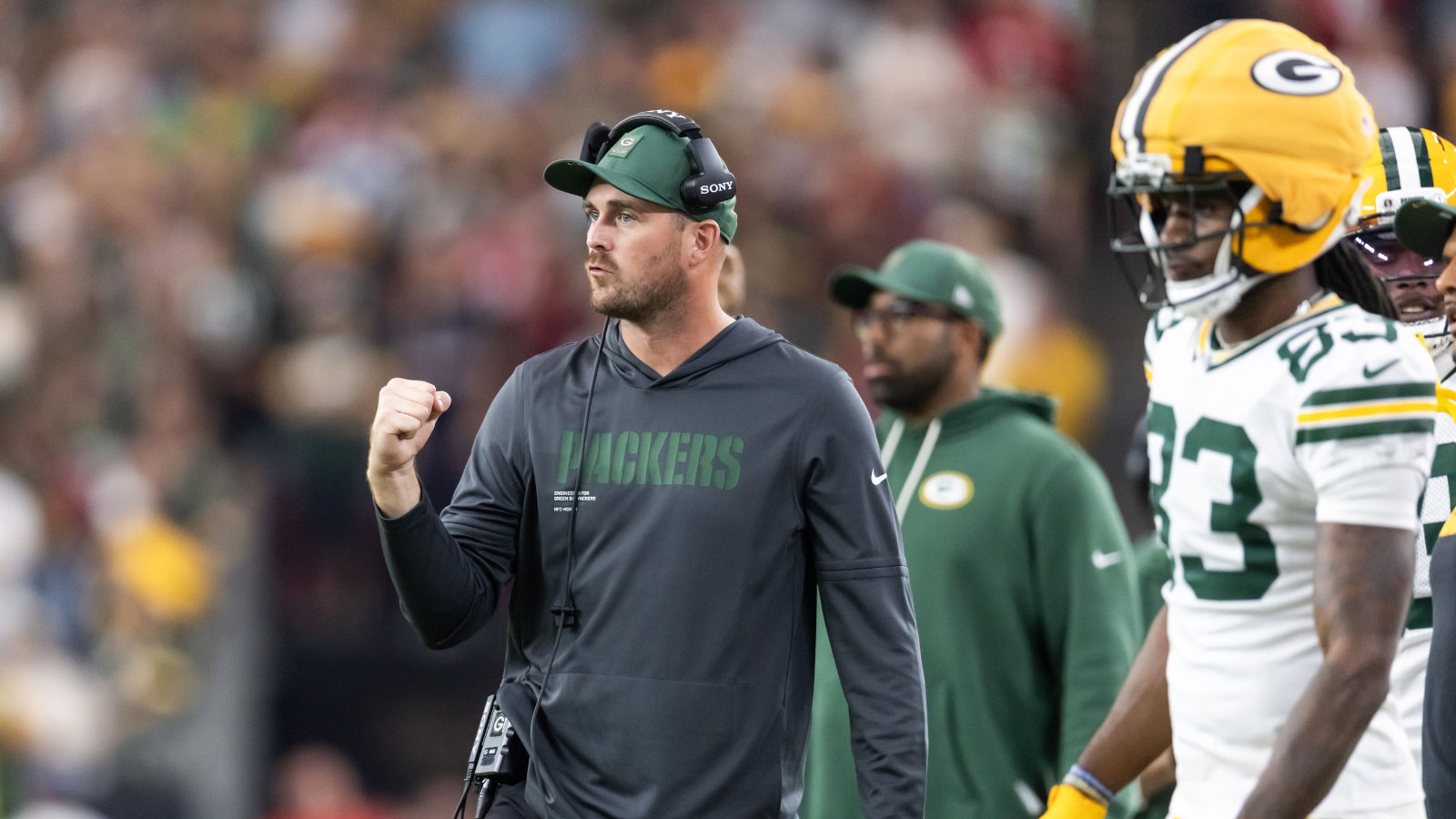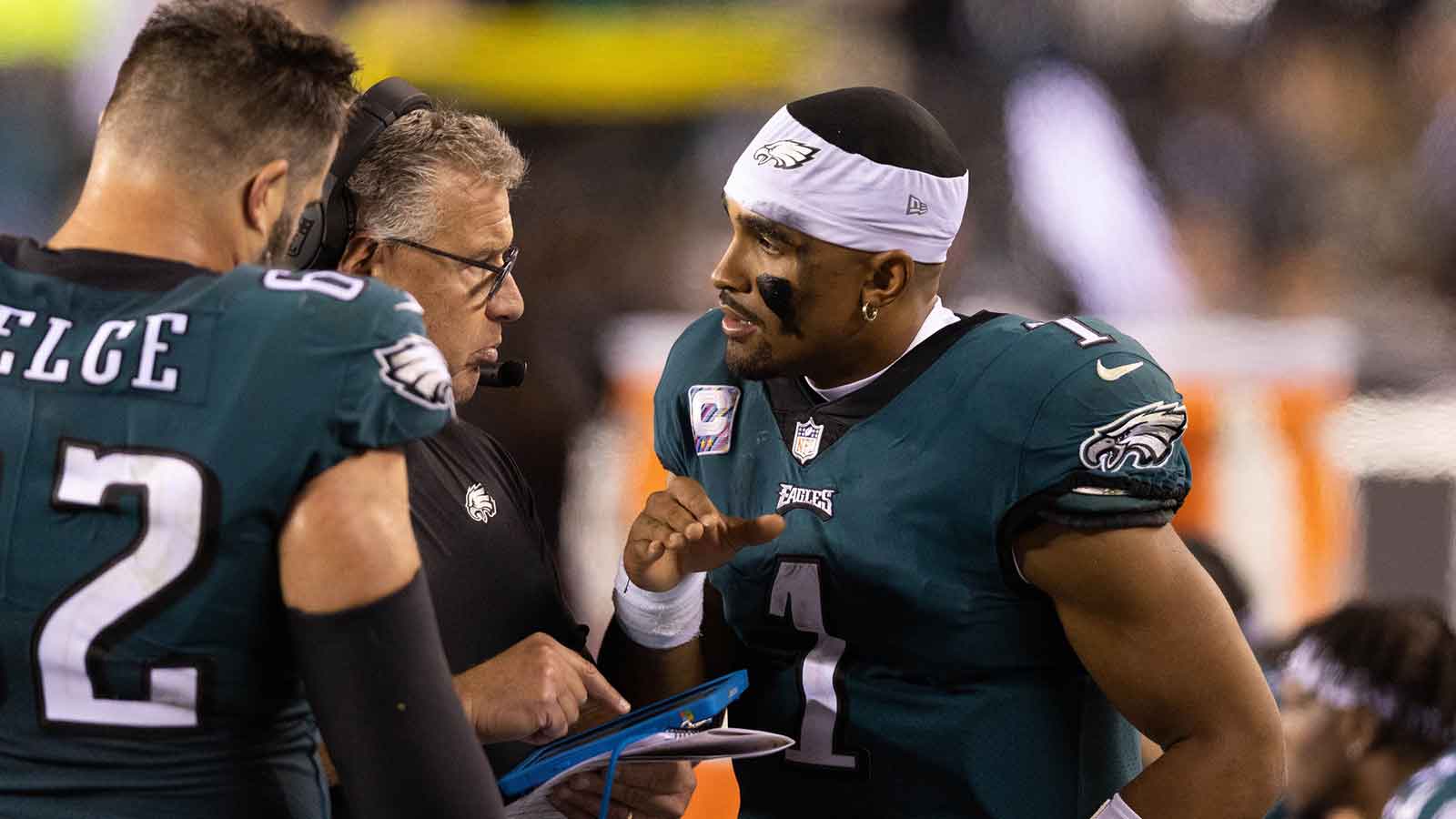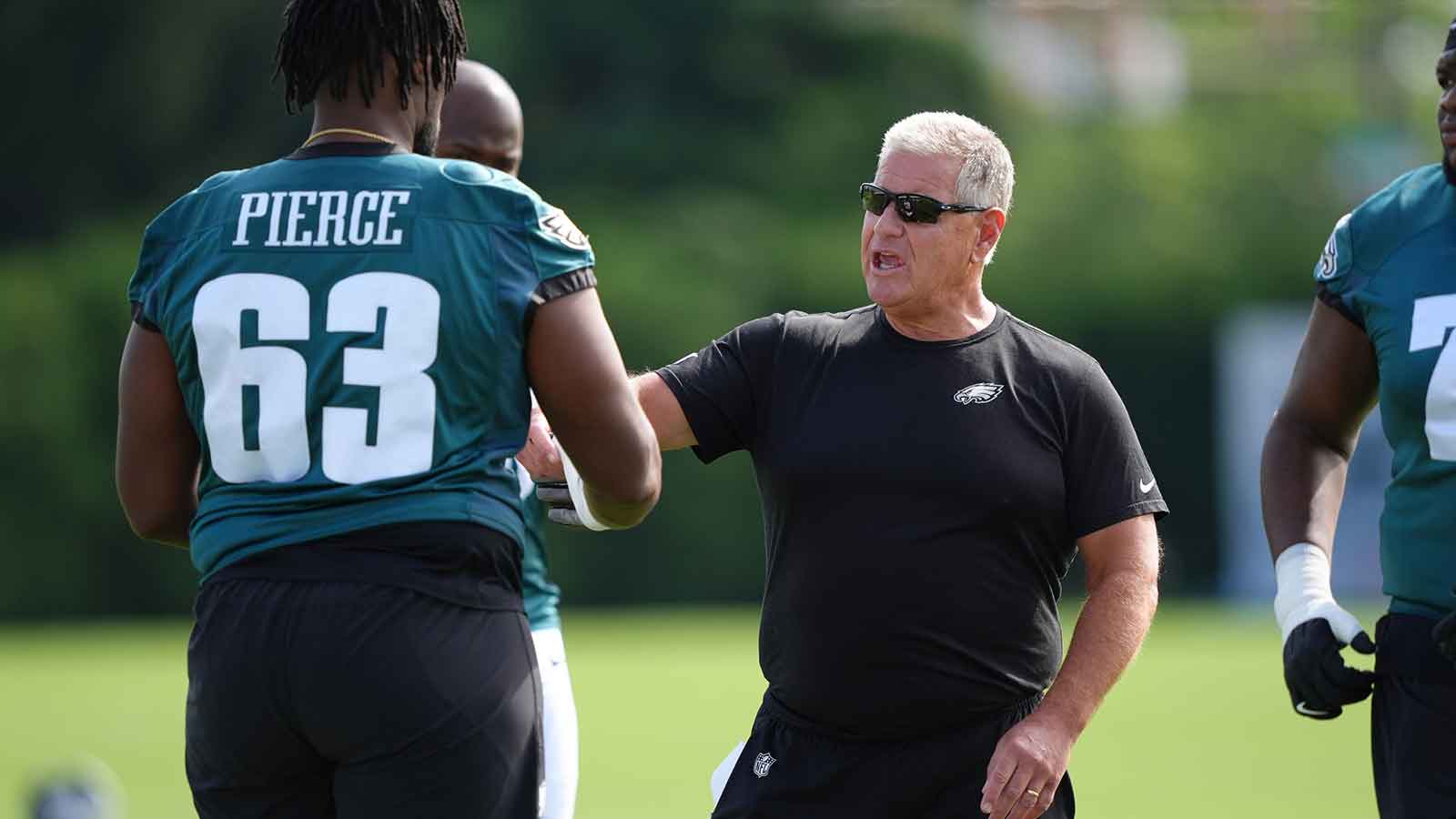In Week 16, the Philadelphia Eagles learned that in football, like in life, nothing good can last forever.
That's right, after winning every single game they've played since September, besting teams good, bad, and somewhere in between, the Eagles were officially dealt their third loss of the season in a Week 16 stunner at the hands of their division rival Washington Commanders.
Now granted, it took Jalen Hurts getting concussed early in the first, a defensive collapse, and some truly inexplicable decisions by some of Philadelphia's starters on both sides of the ball, but in the end, that doesn't really matter: The Eagles lost 36-33, and it was a costly one, with the No. 1 seed in the NFC now almost certainly gone, the top spot in the NFC East still up in the air, and the general mood around the City of Brotherly Love anything but cheery on Christmas Eve Eve.
Discussing what happened after the game, head coach Nick Sirianni laid out a plan, letting anyone who would listen know that this was a “sloppy” game filled with self-inflicted wounds.
“Just sloppy,” Sirianni told reporters. “Sloppy with penalties. Sloppy with too many men on the field. Sloppy with our fundamentals. When you play a good football team like we played today and you're sloppy… it's going to be hard to win. I said to those guys, ‘When it’s sloppy with every piece of that, it’s always going to be on me as the head coach.'”
Is Sirianni on the money with his assertion? Yes, yes, he is, to the point where he and his coaching staff's ability to compensate for Hurts' concussion is one of, but not the only, reasons why the Eagles suddenly find themselves in a precarious situation where ten weeks of hard work went out the drain due to a bittersweet Sunday showdown.
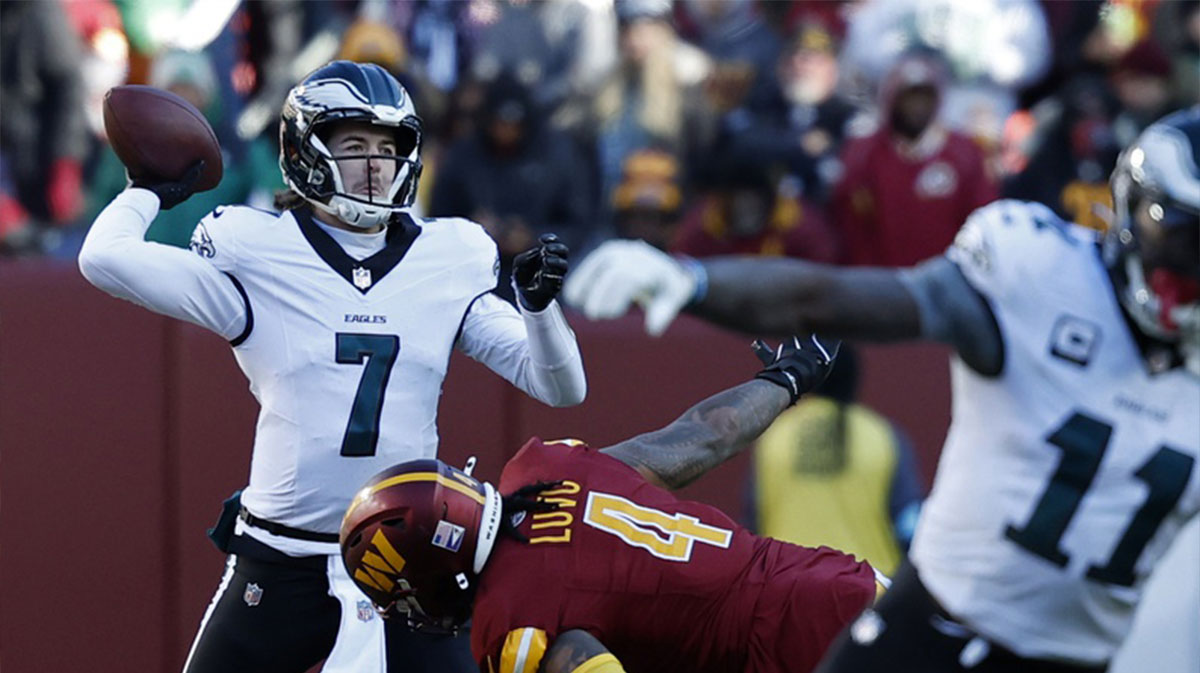
1. Nick Sirianni, Kellen Moore, and the offense
Alright, technically, that is two people, but considering the Eagles' offense isn't the sole responsibility of one man, with Kellen Moore calling the plays while Sirianni provides his input as part of a hybrid scheme, this one falls on both of their shoulders to some degree.
You see, like it or not, the Eagles have built a team that wins a certain way. Granted, Week 15 proved that there is some wiggle room in what the final stat line of a win can look like, but at its core, the strategy remains the same: establish the run with the RPO stylings of Hurts and Saquon Barkley and then take what the defense gives them off of that look.
If, for example, an opposing defense sells out to stop Barkley, Hurts can keep the ball and either pass outside of the pocket or keep the ball and dash for a positive gain with his legs. If, instead, an opposing team decides to stack the box and really sell out on the run, Hurts has proven an ability to air the ball out to his outside receivers when they get advantageous looks, with both AJ Brown and DeVonta Smith getting huge gains on go routes in that very scenario. Factor in the success of Dallas Goedert across the middle and supplemental plays from the rest of the supporting cast, and the Eagles really are one of the more dangerous offenses in the NFL, especially when everything is clicking.
In Week 16, the Eagles no longer had that RPO, as Pickett is semi-mobile but isn't close to the threat on the ground as Hurts. Suddenly, the Commanders could sell out on Barkley without fully loading the box since Pickett wasn't going to rip off a 30-yard run sans a spying linebacker, and as a result, the entire offense looked crowded, unable to make the plays they typically could with ease. This made Barkley's job harder – even if he still got to 150 yards and got back on track in the pursuit of Eric Dickerson's all-time record – really made Pickett's life harder and just generally led to Philadelphia's worst offensive output since what, Week 4 against the Tampa Bay Buccaneers?
Should the Eagles have made some adjustments earlier on? Yes. Did they have enough plays prepared to completely sub out the QB run game and still field something competitive? Clearly not. But come on, in a game where the defense secured not one, not two, but five turnovers, the fact that the Eagles only scored 12 points outside of the fourth quarter is an indictment of more than their playbook. Rather, it's proof maybe last week's near-quarter-spanning drive against the Pittsburgh Steelers was no fluke but instead a real endorsement of Hurts as a passer, a runner, and ultimately a decisionmaker, as he was able to orchestrate something incredible where Pickett could hardly string together an extended drive in relief duty.
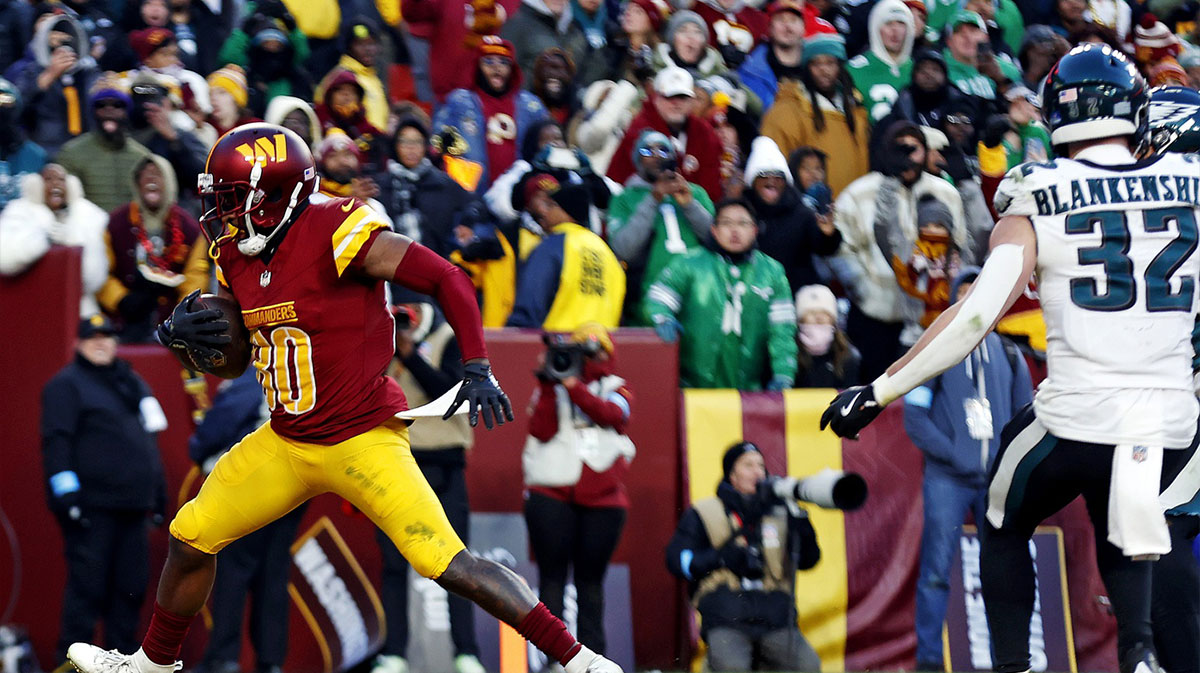
2. Vic Fangio, CJ Gardner-Johnson and the defense
In 2024, the Eagles' defense has been a revelation. They are absolutely dominant against the pass despite starting two rookies at cornerback and are holding opposing offenses to just 102.9 yards per game on the ground, which is the eighth-best mark in the NFL.
And yet, in Week 16, Fangio's old bugaboos began to show, and he played a big part in giving away a game that Philadelphia really should have won.
Now, sure, when a team is able to secure five defensive turnovers while holding an opposing offense to 368 total yards, most of the time, a team will take that. Yeah, surrendering five passing touchdowns is rough, as is securing just one sack in the game on 40 dropbacks, but if a team gets five turnovers in a game where they also score 33 points, something had to go seriously wrong.
What, you may ask, was wrong? Well, simple, really: Fangio took his foot off the gas.
That's right, with the game seemingly locked up 27-14 at the end of the third, Fangio's decision to only rush four while calling porous soft zone coverage on the back end allowed Jayden Daniels to pick the Eagles' defense apart and move the ball with very little resistance. Sometimes, that resulted in a pick, which was nice, but more often than not, the pride of LSU was able to put points on the board in the fourth and secured the 36-33 win thanks to a 22-point fourth quarter.
And the worst part? This was borderline de ja vu for the keen-eyed fan, as it's exactly what happened in the Eagles' first two losses of the season, to the Atlanta Falcons in Week 2 and the Buccaneers in Week 4.
Is this what Fangio does in important, close games? Go full-on bend, but don't break? Go away from what's working and hope an opposing quarterback makes the wrong read instead of pressuring them into it with crafty calls, additional rushers, and the element of surprise? If so, the next time this exact same situation happens, it will likely cost Philadelphia much more than a Week 19 bye.
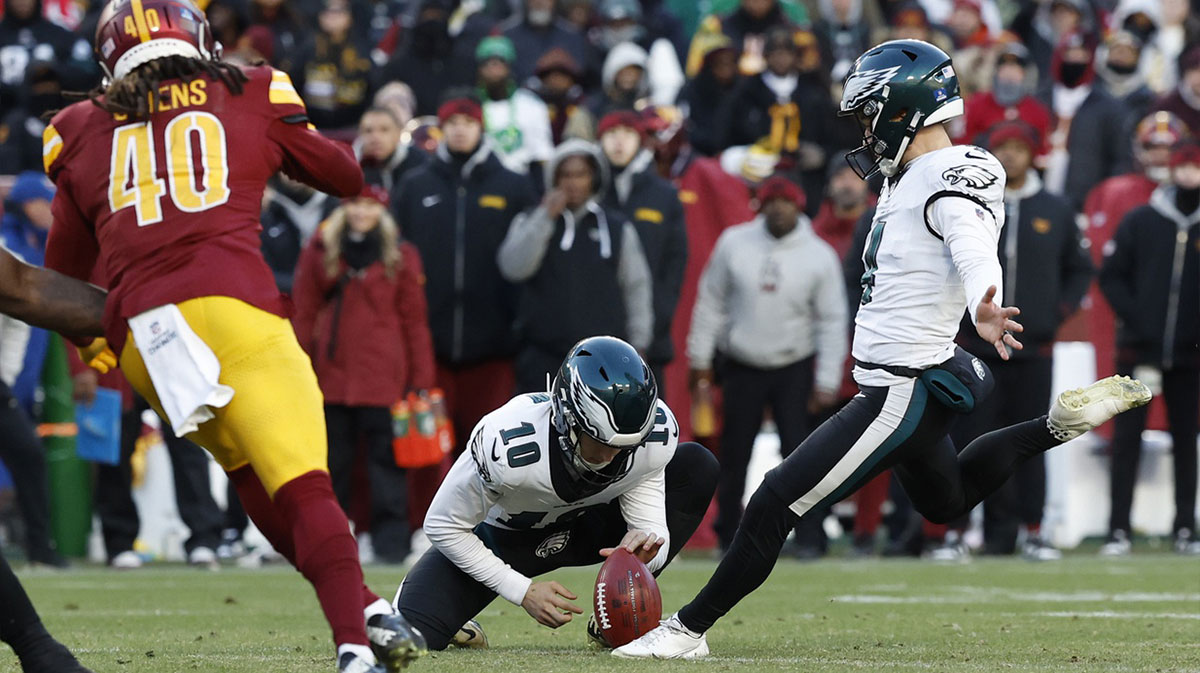
3. Jake Elliott and the special teams unit
Did the Eagles lose because of their special teams? No, they really didn't, but Elliott did miss another kick, going 4-5 from the field while going 3-3 from the extra point line, and Braden Mann struggled with kickoffs in the game, leading to some better-than-expected field position for the commanders. If this truly was a team loss, Michael Clay's unit isn't without fault, too.

